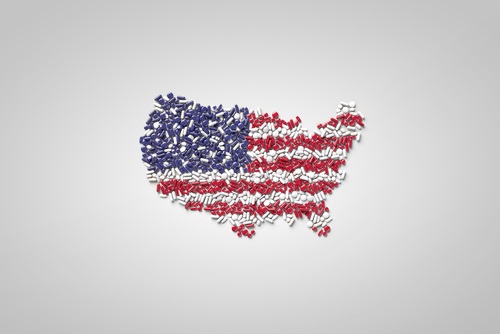
The US Food and Drug Administration has finally released draft guidance on how certain drugs without a product identifier will be exempt under the Drug Supply Chain Security Act.
According to the ‘Grandfathering Policy’ guidance document, medical products that are packaged without a traceable product identifying 2D barcode before the DSCSA deadline of 27 November 2018, but are in the supply chain after that date, can continue to be distributed.
“We are issuing this guidance to help trading partners understand their compliance obligations under section 582 for packages and homogenous cases of product that are not labelled with a product identifier and that are in the pharmaceutical distribution supply chain at the time of the effective date of the requirements of section 582 [27 November 2018],” the FDA said in the document.
Such products are considered grandfathered and the guidance provides clarity on the exemptions from certain requirements under section 582 of the Act.
The DSCSA, which comes fully into force in 2023, requires an electronic, interoperable track and trace system to be introduced to monitor the distribution of drugs in the US to prevent counterfeit, contaminated and diverted drugs.
To be considered eligible as a grandfathered product, there must be documentation, such as transaction information or a transaction history, proving the product was packaged by a manufacturer before 27 November 2018, the FDA says. It is recommended that such information is shared with trading partners.
Manufacturers with grandfathered products are exempt from verifying those products at the package level using the product identifier in situations where they are investigating suspect products and during interactions with authorised trading partners.
Grandfathering exemptions also apply to repackagers. The FDA determined that repackagers may accept ownership of grandfathered products without a product identifier after 27 November 2018. However, if a repackager wishes to then transfer ownership of such grandfathered products on or after 27 November 2018, it must, first add a product identifier to the product package.
Repackagers are also exempt from verifying grandfathered products at the package level using the product identifier in situations where they are investigating suspect products. They are also exempt from verifying the products using a product identifier during interactions with authorised trading partners if they repackaged and sold the grandfathered product without a product identifier before 27 November 2018.
Meanwhile, wholesaler distributors are allowed to engage in transactions with grandfathered products from 27 November 2019, and are not required, from the same date, to verify the product at the package level using the product identifier when determining whether a product is illegitimate, although they still have to validate the transaction information and history. The same two exemptions apply to dispensers but from the date of 27 November 2020.
Such exemptions hold until the grandfathered product is repackaged during a change of ownership or product expiry as the FDA has not given a sunset date for the grandfathering exemption, although the agency expects there will be relatively few grandfathered products still in the supply chain by 2023.
“A package missing product tracing information is a scenario that could significantly increase the risk of a suspect product entering the drug supply chain. As product identifier requirements are implemented over time, trading partners should be diligent when engaging in a transaction of a package or homogenous case of product without a product identifier to ensure it is subject to the grandfathering policy, other type of exemption, or a compliance policy,” the FDA warns.
The guidance also clarifies that saleable returned products are exempt from certain product identifier requirements if they were in distribution prior to 27 November 2018.
Under the DSCSA, pharmaceutical products must be traced through the supply chain, which requires trading partners (manufacturers, repackagers, wholesale distributors, and dispensers) to exchange transaction information, transaction history, and a transaction statement (product tracing information) when engaging in transactions involving certain prescription drug products.
In addition, drug manufacturers must include a product identifier (encoded with the product’s standardised numerical identifier, lot number, and expiration date) on their packages from 27 November 2017, while repackagers have until 27 November next year before they must include the 2D barcode.
The Act also restricts repackagers, wholesale distributors and dispensers from receiving or transferring ownership of drugs that are not encoded with a product identifier from 27 November 2018, 2019 and 2020, respectively.
Earlier this year, the FDA announced it would delay enforcement of the Act by one year, saying it would not take action against manufacturers that did not add a product identifier to their products before 27 November 2018.
The grandfathering guidance document does not address products or transactions that have been granted waivers, exceptions, or exemptions from bearing a product identifier. The FDA will address this in a separate guidance.
©
SecuringIndustry.com
 | back to top
| back to top





